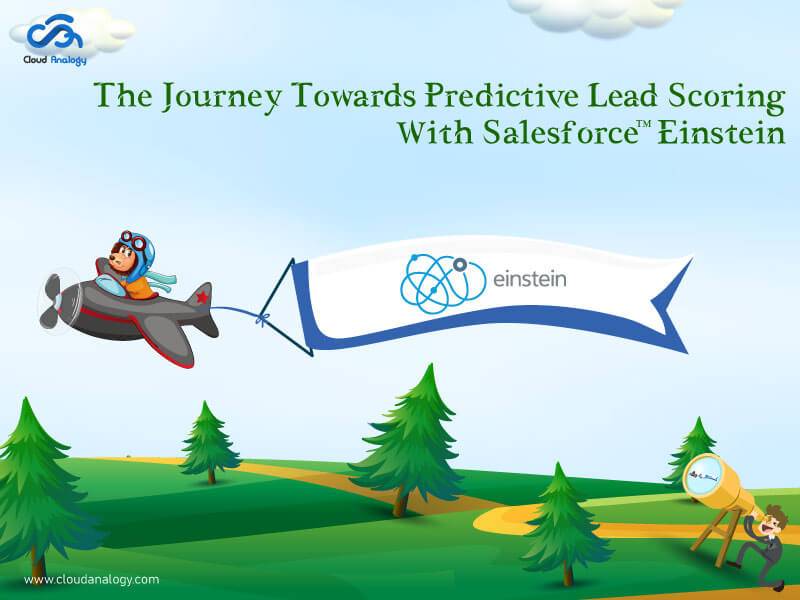Sharing is caring!
Sales conversion is the key to business revenue and growth. And, leads are essential for sales conversions. No leads; no sales. The sales and marketing departments nurture the leads – potential customers, and convert them into actual customers. However, not every prospect is worth pursuing. Some may have just expressed interest in your product, while a few may be actually contemplating on buying your product. Business cannot afford to miss out on such potential sales opportunities. Lead scoring has been a reliable tool for the sales and marketing teams to categorize and prioritize the quality leads while filtering out the unproductive ones. First, let us find “What is Lead Scoring?”.
What is Lead Scoring?
It is a methodology used to rank the prospects against a scale that is based on the perceived value each lead represents to the organization. Lead scoring helps your team to prioritize leads increase sales efficiency. It helps to rank your leads based on certain factors – behavioural and demographic and enables your sales and marketing departments to determine the most potential lead to pursue. It arms the sales and marketing teams with the knowledge about existing customers and prospective customers too. We will delve into “How Lead Scoring Works?”.
How Lead Scoring Works?
Typically, based on demographic information and user’s activity, the CRM automatically assigns a value to your leads. The value of the lead does not remain constant. With most lead scoring systems based on the 100-point scoring model, a lead which scores a 90 today may not be valuable couple of weeks down the line. The increase and decrease in the value of the lead score enable the sales team to prioritize their leads as sales-ready and work towards their conversion. Now,it is time to discuss types of Lead Scoring.
Explicit and Implicit Lead scoring
There are two ways of scoring the leads – explicit scoring and implicit scoring. Explicit scoring, also known as demographic scoring is based on data collected on a given lead. It even includes information entered in a form. Depending on the industry and the customers you serve, you rank the leads differently based on what you see is valuable or less valuable.
On the other hand, implicit scoring also known as behavioural scoring refers to the prospects activities on your website or any sales channel. Based you whether they viewed a product multiple times, signed up for a newsletter or downloaded a whitepaper, you would weigh them differently. This is basically to differentiate a visitor with a casual interest from a visitor who is genuinely looking for a solution on your website.
However, the biggest challenge was to interpret the data in a way that is both consistent and accurate, and it was often flawed. A survey in 2016 revealed the concern that lead scoring gave “misleading buying signals”. This paved way to predictive lead scoring – a smarter methodology rooted in analytics to help businesses with a more organized approach towards categorization and qualification of leads.
Predictive Lead Scoring
Powered by Machine Learning (ML) and Artificial Intelligence (AI), predictive lead scoring utilizes a massive amount of information to categorize and qualify the leads. Based on the purpose of addressing the company’s needs and to the changing markets, predictive lead scoring helps to build strong leads by providing insights, and identify profitable leads which the teams can focus first. It leverages both historical data and predictive analytics to calculate a more informed score. It streamlines the process by eliminating the risk of human errors and qualifying the leads better.
What does predictive lead scoring mean to businesses?
Predictive lead scoring is a tool that uses an algorithm.
- Helps to predict which leads can be qualified or non-qualified from your database.
- Different information is taken into account when predicting the score such as behavioural data, social information, demographics etc.
- It takes the burden off you in determining what properties to be included and the weightage to be given.
- It looks at the information your customers have in common and also the information in common for the leads that did not close.
- It automatically comes up with a formula to segregate your leads and helps you identify the most qualified ones.
Now, we will come to Sales Cloud Einstein – a new approach to predictive lead scoring.
Sales Cloud Einstein
Sales Cloud Einstein is Salesforce Einstein’s product for sales which focuses on making CRM for companies as a predictive system of intelligence. It guides reps with the best leads and opportunities enabling them to increase conversion rates and close more deals. It provides predictive intelligence to identify and prioritize profitable leads. It results in a complete change in the way companies understand and interact with their customers.
Sales Cloud Einstein filters out unproductive leads efficiently. It provides a complete AI solution to the sales teams with crucial predictions, intelligent recommendations, and with timely automation done immediately. Based on the CRM data and sales activities, its predictions and recommendations get better eventually.
Einstein Lead Scoring - a key function of Sales Cloud Einstein
One of the key capabilities of Sales Cloud Einstein is Einstein Lead Scoring which helps reps to convert leads faster and in more numbers. Historical sales data is analyzed automatically using artificial intelligence to uncover the key factors likely to convert a lead into an opportunity. It helps the sales team to segment and prioritize the leads and gain insights into the conversion or non-conversion of them. Sales reps are better prepared for every call with Einstein Lead Scoring – their personal data scientist to improve prospect connection and its conversion to higher levels.
Machine Learning enables to improve the accuracy of Einstein’s predictions continuously. Einstein’s Lead Scoring not only uncovers the insight but, by giving a smart lead score it predicts the likelihood of conversion of the lead. It also provides information on how the score was determined automatically.
Einstein Lead Scoring is tailored to companies and each customer. It analyzes standard and custom fields of Lead object and tries various predictive models such as Logistic Regression, Random Forests, and Naive Bayes. The best model is chosen for the sample dataset automatically. Models are updated every month to give the most accurate decisions about your leads. On an hourly basis, leads are scored and in case of any changes on the leads, rescoring would be done in the next hour.
Benefits of Einstein Lead Scoring
- Sales and marketing teams will be able to increase their connections and also their sales conversion rates.
- The sales reps are empowered with customer data and intelligence that help accelerate customer engagement with the best leads resulting in high percentage of conversion.
- More importantly, sales reps are able to understand the lead score factors better.
Top Features of Einstein Lead Scoring
- Zero Setup — No implementation of or import/ export to separate tools.
- Custom Lead Score-Driven Workflows — Easily assign tasks based on predictive lead scores.
- Smart Lead Lists — Surface the best leads quickly.
Conclusion
Leads are vital for any business. Lead Scoring offers a way to prioritize leads and increase sales efficiency. Predictive lead Scoring is empowered with Machine Learning and Artificial Intelligence. It provides insights to builds strong leads. Predictive Lead Scoring helps to segregate the qualified and non-qualified leads.
Sales Cloud Einstein is a new approach to Predictive Lead Scoring. Einstein Lead scoring enables the sales reps to convert leads at a faster rate. It also enables you to predict which leads and opportunities are most likely to convert. Businesses can discover insights from millions of data, take informed decisions and chart a new success path.

Akshay Dhiman
Chief Technical Officer
Akshay Dhiman, the CTO of Cloud Analogy, has been a standout and successful Salesforce Platform Developer for years. He has a rich experience in Salesforce Integration, JavaScript, APEX, VisualForce, Force.com Sites, Batch Processing, Lightning, PHP, C++, Java, NodeJs, ReactJs, Angular 8, GraphQL, React Native, Web Technology, and jQuery.Hire the best Salesforce Development Company. Choose certified Salesforce Developers from Cloud Analogy now.










